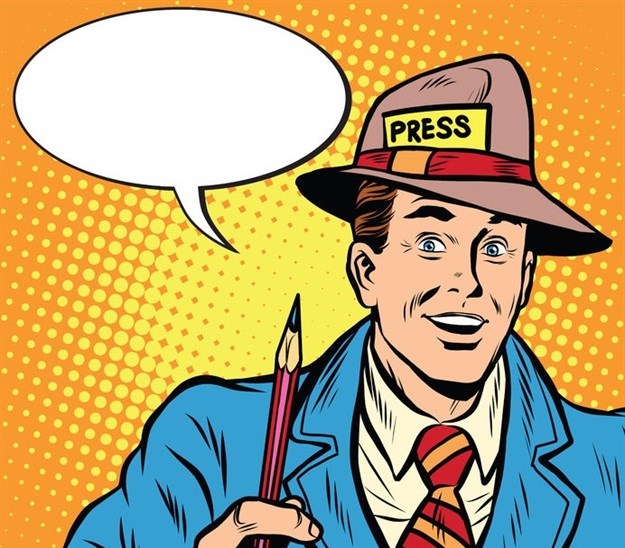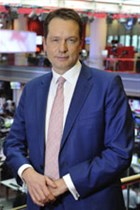It is a massive understatement to say that it is an interesting time for Western democracy.
The UK is still getting to grips with what Brexit really means while in the US Donald Trump will shortly be installed in the Oval Office. In France, the Front National leader Marine Le Pen stands an outside chance of becoming the country’s next president. Support for populist politicians in America and parts of Europe (on both the left and right) is unparalleled since the Second World War. As societies grapple with the effects of globalisation and economic and social change, what has become acutely apparent is a growing chasm between traditional establishment politicians and large tranches of the voting public.

Do you trust the news? Image credit: Studiostoks © –
123RF.comThese changes are complex but just when clarity of analysis is needed, social media is distorting how people see the world, meaning that different interest groups end up living in different universes of understanding. ‘Facts’ have multiplied and become devalued – news feeds are full of misinformation, and you can always find an expert, if only a self-styled one, to endorse your view. This is a dangerous mix and one which politicians and the media are finding hard to cope with.
Against this background of post-truth politics, fake facts and filter bubbles, the value of reliable, non-partisan sources of news to audiences is rising. In the last year alone, the EU referendum result in the UK, the failed coup in Turkey, the terrorist attacks across Europe and of course the US election have contributed to record audiences for the BBC on TV and online. In the hours and days after the US election result, our unrivalled international network of correspondents reported from every corner of the globe, informing our global audiences on what Trump’s election will mean for the likes of China, Russia and Mexico.
But being considered part of a serious, trustworthy segment of journalism, with the influence that all traditional news providers would like to have, comes with a significant degree of responsibility. The media should be contributing to and facilitating an informed democratic conversation and considering whether we may have been too precious about the people who are or aren’t palatable or acceptable to what we considered the mainstream narrative.
With trust in public institutions at an all-time low in many countries, and bubbles of opinion going unchallenged, the ground has been fertile for populist movements to grow. After recent tests for establishment politics in Austria and Italy the spotlight turns on the Netherlands, France and Germany in 2017. These events will be a challenge for mainstream media as well as for politicians.
There is a danger that news organisations get drawn into superficial coverage as they chase audiences. According to a recent report, the three major US nightly news shows combined spent just 32 minutes in total interrogating the candidates’ positions and proposed solutions on substantive policy issues in this presidential election year – a fraction of the time they devoted in previous election years (114 minutes in 2012, 220 in 2008). Issues that got minimal or no coverage included drugs, healthcare, poverty, gun control, and climate change. This was in stark contrast to the time spent covering talking points that the candidates themselves selected in order to promote their own causes.
And this is the challenge. In a world in which there is an ever-thickening ‘information smog’ of false facts and filter bubbles, rather than abandoning long-standing editorial principles, there is a greater need than ever for trusted, transparent news and for news providers which report the facts, host the argument and interrogate the participants. In short, serious news organisations like the BBC should stick to doing what we’ve always been good at.
While such content may not draw as many readers as skewed coverage and headline-grabbing stories, if the BBC has to choose between building an audience and sustaining its reputation, it’s pretty clear which way we are going to go.
In our coverage of the EU referendum campaign, there was much debate around the issue of false balance – giving pro and anti equal airtime, regardless of the facts, editorial judgment and expertise of the interviewee. Some “remainers” suggested that the BBC was ‘too impartial’, giving the same treatment to respected experts as to know-nothings and lightweights. But in fact, the BBC took great care to follow its strict editorial guidelines and to challenge claims from all sides. Journalists frequently took on campaigners and exposed as false what had been touted to the public as fact.
My view is that the BBC’s journalistic principles like accuracy, balance and impartiality – even though they are nearly a century old – are just as important today. They are the bedrock of trust in the news – and the collapse of trust in news media plays a big role in what is happening around the world. It is time to bring those principles into a contemporary context. We need to be more confident about what journalists are good at, which is exploding myths, calling people out and holding individuals, and claims, to account. Our skills are now more necessary than ever.










































